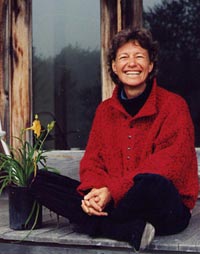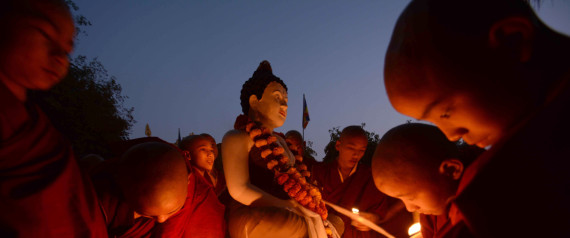The Buddhist Channel, March 17, 2015
 < Ruth Denison. Sept 29, 1922 - Feb 26, 2015
< Ruth Denison. Sept 29, 1922 - Feb 26, 2015The first Buddhist teacher to lead an all-women's retreat and the first teacher to use movement and dance to train her students in mindfulness, Denison, who asked everyone to call her simply Ruth, created a quintessentially female, body-centered way of teaching.
She was one of the first meditation instructors at the Insight Meditation Society in Massachusetts, as well as at Spirit Rock Meditation Center in California; for forty years she taught extensively in the United States and Europe, helping to establish meditation centers in Canada, Germany, Alaska, Massachusetts, Colorado, Portland and California.
She founded Dhamma Dena Desert Vipassana Retreat Center near Joshua Tree, CA, in 1977, where she led retreats thrice-yearly up until last year. She was an ardent supporter of female Buddhist monastics' efforts to be allowed full ordination and often welcomed nuns to Dhamma Dena. In 2006, the Women's International Meditation Center Foundation recognized Ruth as an for her role in bringing Vipassana Buddhism to the West.

.jpg) << Priya Rakkhit Sraman (left), a Buddhist monk from Bangladesh, speaks with Seng Yen Yeap (holding beads), a monk from Hong Kong.
<< Priya Rakkhit Sraman (left), a Buddhist monk from Bangladesh, speaks with Seng Yen Yeap (holding beads), a monk from Hong Kong.


